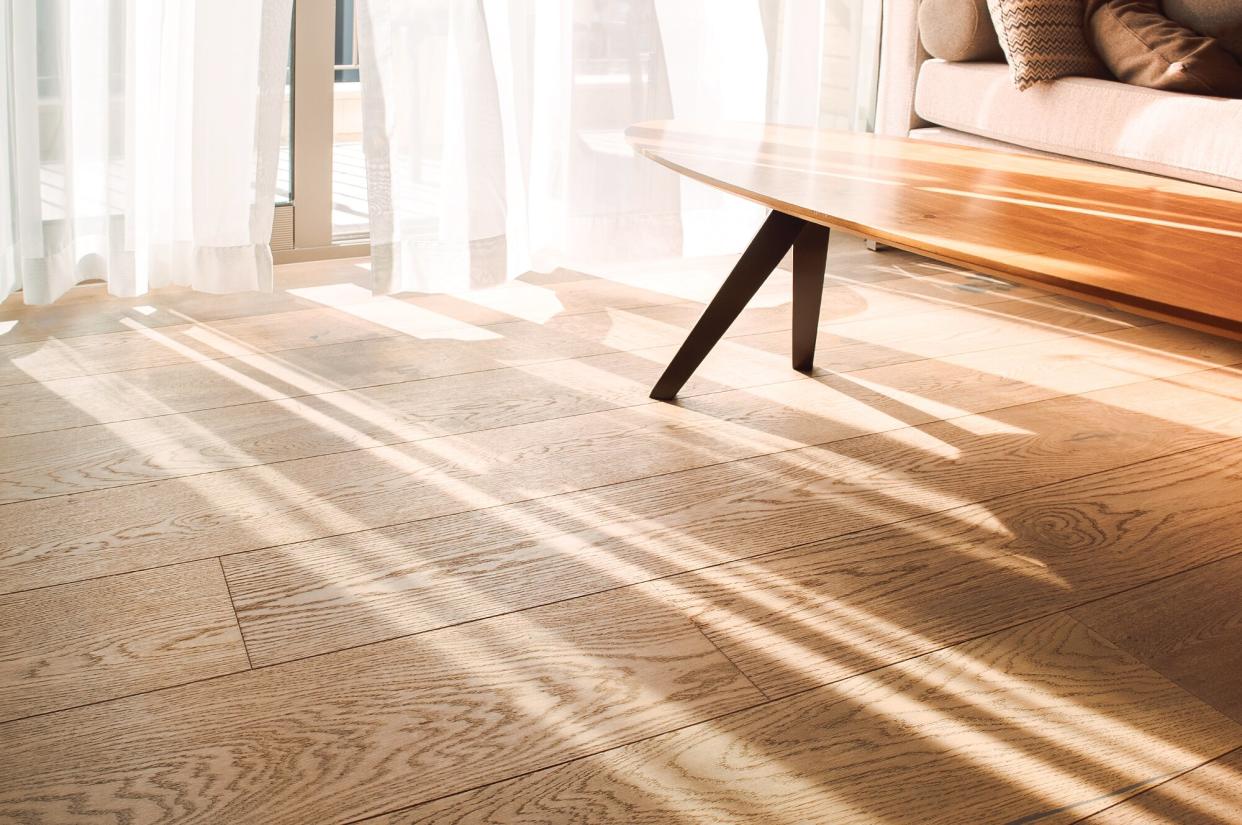How to Clean Vinyl Floors in 4 Easy Steps

Getty Images
People love installing vinyl flooring in their homes. Not only is it a low-cost flooring option that can make a big impact, but it's also a fairly low maintenance choice. Given how busy everyone is these days, finding a way to clean your house fast is always a bonus. Here's how one cleaning pro says you should keep your vinyl floors clean.
Related: How to Keep Your Floors Protected from Snow, Sleet, and Slush During Winter Parties
1. Choose the right tools for vinyl flooring.
Vinyl flooring is very easy to maintain with tools for dirty household jobs such as a high quality microfiber flat mop and a well formulated neutral pH floor soap like Mr. Clean, says Melissa Homer, chief cleaning officer at MaidPro. "Microfiber traps 10 times more dirt than cotton, which reduces streaks, while the neutral pH soap lifts oils and soils without dulling the acrylic top layer of the vinyl," she says.
2. Damp mop your vinyl floors.
Homer says that vinyl plank floors, even those that claim to be waterproof, are not often water resistant at the seams. This makes them very susceptible to water damage along the seams and baseboards where moisture can seep in. "To avoid water damage, it is best to mop vinyl floors with a technique called damp mopping," she says. "First, vacuum the floor thoroughly with a canister vacuum using a horsehair hard floor brush attachment to avoid scratching your floor. Vacuuming removes more dirt than sweeping."
Next, she says you should prep for mopping by diluting your floor cleaner in a quart spray bottle. You should also wet and then thoroughly ring out your microfiber flat mop pad with fresh warm water. "To mop, spray a 3-foot square section of the floor with a light even mist of floor cleaner and then mop it off immediately with your lightly dampened mop head," she says. "Repeat this process across the floor, stopping every couple of sections to check if the mop pad is dirty or saturated. Rinse and wring the mop pad when it gets close to full."
3. Avoid cleaning tools that get vinyl floors too wet.
String mops and steam mops are both major no-nos, says Homer. "Regardless of the tool you use, the key is to never leave puddles or let the floor get sopping wet, as water can absorb and ruin the underlayment and base flooring underneath," she says. "Vinyl floors are also susceptible to scratching and dulling, so never scrub it with anything scratchier than the scrubbing back of a nonabrasive kitchen sponge."
4. Stay on top of messes that might compromise your vinyl flooring.
All hard floors, vinyl or otherwise, should be mopped to match the frequency of the foot traffic in the room, Homer says. "For most homes, high traffic rooms like the kitchen, bathroom, and front entryway should be mopped weekly to every other week," she continues. "Less frequented rooms, like a formal dining room, can be mopped every two to four weeks, depending on use."

